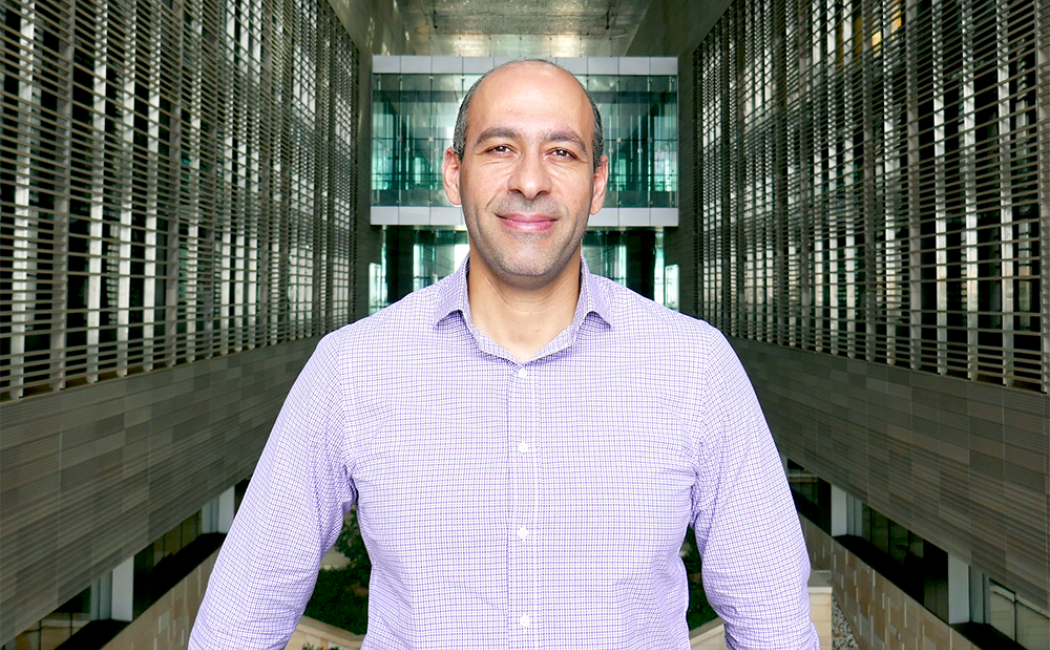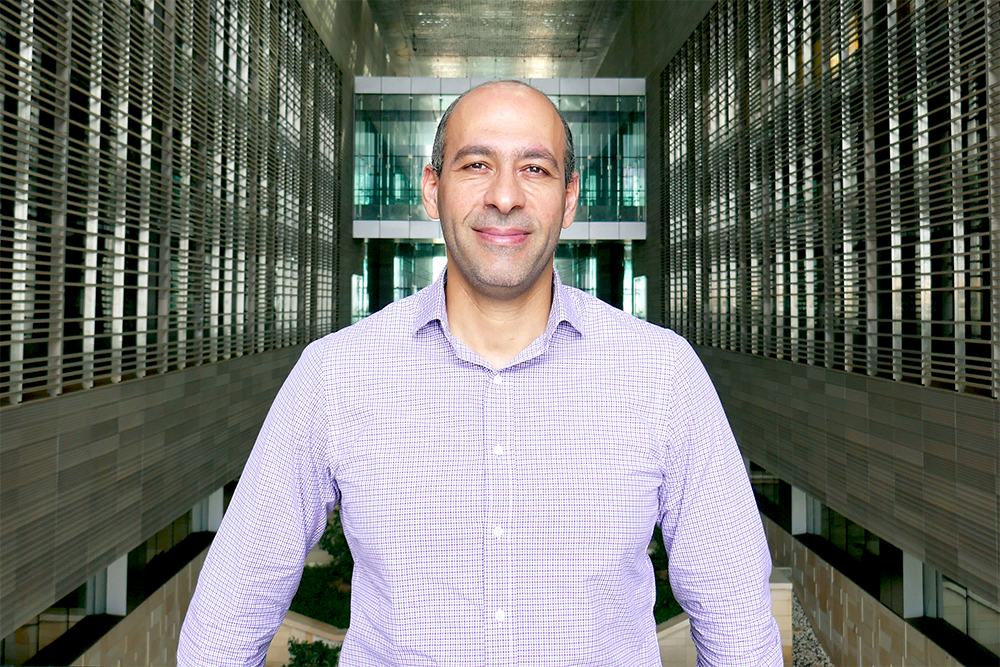.jpg?sfvrsn=39330263_0)
.jpg?sfvrsn=39330263_0)

18 May, 2017

Professor Hussein Hoteit, Associate Professor, joined ANPERC November 2016 after a substantial career in the industry.
Professor Hoteit‘s research focuses on Enhanced Oil Recovery (EOR) schemes in Reservoir Engineering.
We interviewed our new faculty member to learn more about his education, research aspirations, and his experience in academia and industry.
ANPERC: Tell us about your background.
Prof. Hussein: My undergrad and Ph.D. degrees are in Applied Maths. After graduating from France, I moved to the U.S. where I worked for different oil companies in Palo Alto, California and Houston, Texas. In Houston, I used to work for ConocoPhillips as a Senior Reservoir Engineer, and then I worked for Chevron as a Staff Reservoir Engineer. I have about 15 years of cumulative experience in the Oil & Gas industry.
ANPERC: What can you tell us about Reservoir Engineering?
Prof. Hussein: My experience is mainly in reservoir engineering, as I pointed out, and this is also my research focus area. But before digging into details, let me give you a bigger picture.
Reservoir engineering is one component of petroleum engineering, which is within our focus research area at ANPERC. There are different disciplines within petroleum engineering such as production engineering, drilling engineering, geomechanics, reservoir engineering and others. We essentially deal with fossil fuels and, in particular, hydrocarbon energy. As you may know, fossil fuels from conventional and unconventional oil and gas reservoirs are likely to remain, for years to come, the leading energy to power the world economies and keep pace with global consumption growth.
If we talk a little bit more about the ANPERC's mission, I would like to quote our Center Director, Professor Patzek: “One main mission of the center, in simple terms, is to help the industry to sustain oil and gas production rates to meet demand, and develop new cost-effective technologies to enhance oil recovery with reduced environmental footprints.” Production rates from oilfields typically undergo a natural decline of about 5% annually. As a result, sustaining oil production rates from an oilfield requires staged field developments that often undertakes primary, secondary, and tertiary recovery schemes.
My research in reservoir engineering is focused on modeling tertiary recovery schemes, also known as enhanced oil recovery. The exciting part about this research is that it requires collaborations with researchers and engineers with different disciplines. For instance, we need to deal with geology, geophysics, and petrophysics to understand more about the reservoir characteristics such as structure, stratigraphy, and fluid and rock properties.
ANPERC: Why is this kind of research valuable to industry?
Professor Hussein: That’s an excellent question!
I find myself lucky as I had the chance to experience life in the industry. I firmly believe that research and industry should go side by side and hand in hand. This approach is an effective way to produce useful research.
Now, when it comes to petroleum engineering, our research is obviously related to hydrocarbon fields which are owned by the industry. Therefore, our research or any technology we develop here in ANPERC has to fit with the industry needs.
ANPERC: What about KAUST was attractive that made you want to move from industry to academia?
Professor Hussein: Having worked in the industry, I have been involved in research and development (R&D) as well as in technical services in reservoir engineering. R&D in the industry is often closely guided and focused on addressing short-term to mid-term needs. I find research and technology development something I like, and I’m always eager to shoot for more ambitious and high-impact research, which is more suitable in an academic environment.
So, coming back to KAUST and “Why KAUST?” I was very lucky to learn about KAUST from a friend, and I was very impressed when I first came to visit. I think I got a strong feeling about the great potential that KAUST has. I also am very excited about our center (ANPERC) and also all other resources that KAUST provides from the Core Labs to high computational resources, and other state-of-the-art facilities. But what was exceptionally important to me is the quality of people at KAUST.
Another driver for me to move to the academia was to leverage on the experience and lesson-learned that I acquired from the industry. I’m excited to collaborate with my researcher peers and most importantly, with ambitious and curious students. I’m also interested in teaching and believe that it is a two-way educational process.
ANPERC: What do you think about the research environment at KAUST?
Professor Hussein: I honestly believe that KAUST has a great potential and as, President Jean-Lou Chameau always says, “KAUST’s great potential is in its people.” One thing that I found unique and inspiring is having this diversity, people coming from around the world with different cultural and educational backgrounds. It is truly an international, well-integrated community, and all are dedicated to KAUST and committed to noble aspirations for human development.
ANPERC: Do you mind telling us something about you that nobody knows?
Professor Hussein: I’m someone who likes gardening and nature. I’m also a professional handyman who enjoys fixing and building stuff. I have a special admiration for hand tools and hardware. I used to be a tool collector. This could be the part I may mostly miss here at KAUST.